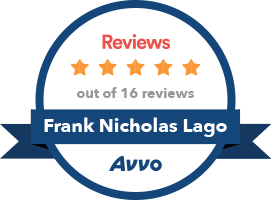General Counsel
Important Clauses in Purchase Agreements – Part 1
August 3, 2018

The title of this post is misleading, all clauses in a purchase agreement are important. But, there are a few that are usually more argued over than others. Here is some information to improve the purchase agreement and protect yourself. This is part 1 of a series of blog post that will help you analyze your purchase agreements. When in doubt, consult a business attorney. Bay Area Corporate Counsel, in Tampa, Florida can help.
Who is Entering Into the Agreement?
A business selling its assets must be the “seller” because it is the owner of the assets. The owner of the assets is the business, not the individual that owns the business and therefore the business should be listed as the seller. Example. Buyer is buying a restaurant. Restaurant, LLC is the owner of the assets and should be listed as the seller, not Owner of Restaurant, LLC.
The buyer should be a business entity, not an individual’s name to the extent this can be avoided. This protects the Buyer from any liability associated with the purchase agreement or other agreements. Sometimes, the Buyer will have the ability to assign the purchase agreement to a business entity created later on. But, the assignment of such contract can be disputed if the assignment occurs before the Buyer is trying to get out of the deal and does it to avoid personal liability.
Promissory Notes.
Buyer should use his entity to enter into the promissory note. If Buyer cannot make payments and goes bankrupt, Seller will need to sue the Business Entity, which will only have the assets of the business and not the personal assets of the owner of Buyer.
Seller should make sure there is some personal guarantee for the promissory note. If Buyer defaults, as above, Seller’s recourse will be limited. Getting a personal guarantee or a promissory note form a person allows the Seller to enforce that note against them as well and increases Seller’s chances of getting paid.
Stock Purchases.
In this case, the owner of the Restaurant, LLC should be the “Seller.” Buyer is not buying the assets of the LLC but the equity/ownership of the LLC and therefore the owner should be the Seller and not the LLC.
What are you Buying?
Pay close attention to the definition of assets in the purchase agreement. I have seen agreements that reference an exhibit or “schedule a,” which is never completed by the parties. It is better to use broad language if you are buying an entire business, like “all the assets used in the Business (defined term), tangible and intangible, free and clear of any encumbrances, including but not limited to…” This very expansive definition means the Buyer gets everything, which would include accounts receivables, bank accounts, online accounts, etc. If Seller wants to exclude an asset they can, they just have to include an excluded asset list. Usually the Seller will keep the bank account, personal items, etc. Otherwise, the computer, the car, everything owned by the business becomes the Buyer’s.
For stock purchases you need to make sure you are getting all of the stock or understand what portion of the company you are purchasing. You should see shareholder schedules and tax returns to determine all the owners of a company.
Inventory
How much inventory is being transferred. Many times, this amount is left blank and is not filled in prior to the execution of the purchase agreement. This creates a problem if the Buyer thinks they’re getting $100,000 in inventory when Seller plans on only having $50,000 on hand. Therefore, it is best to state what amount of inventory Seller will have at closing. One way to accomplish this is using as Trailing Twelve Month (TTM) average. If the agreement doesn’t call for a specific dollar value in inventory stating Seller will have on hand at closing the TTM average amount of inventory is sufficient to get you an average amount of inventory for starting the business.
If there is more or less inventory, the Purchase Price will need to be adjusted, up or down. Sometimes the purchase price is adjusted in the promissory note that accompanies the purchase agreement. If Seller is owed money, Seller’s shouldn’t accept the purchase price adjustment in the promissory note because they are giving a current asset for the promise of a payment and should try to get cash.
In future post we’ll cover the rest of the purchase agreement. Please come back to this blog for more information or search the repository for more information.
Please, like, share, etc. to show your support.
Please contact Bay Area Corporate Counsel with any questions you have.






